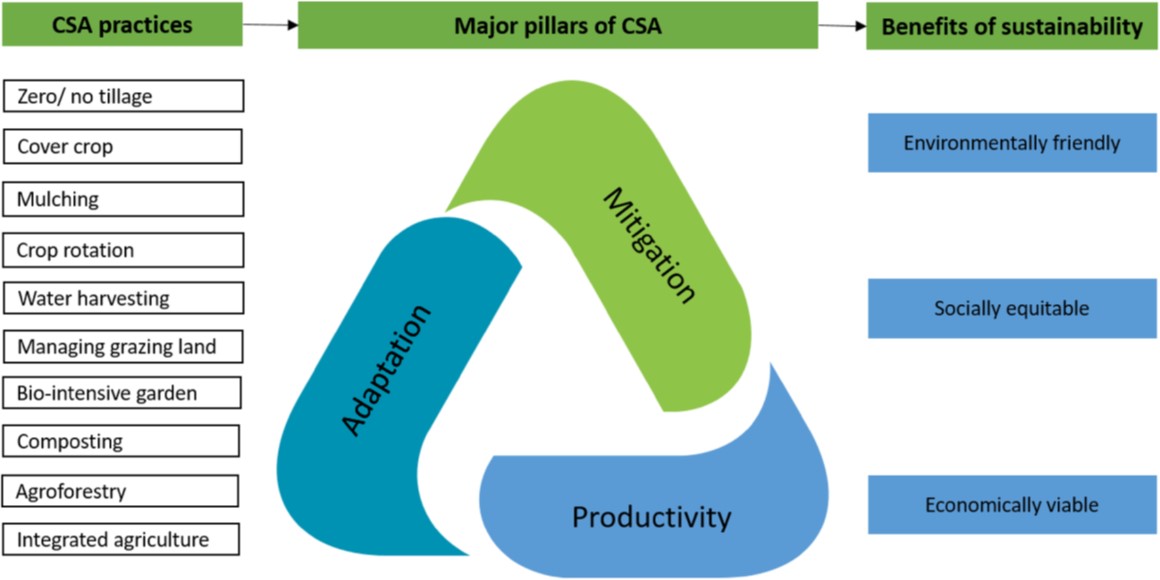June 27, 2023 | Sustainability Science | Source |
Introduction: Climate-Smart Agriculture (CSA) offers a pathway to achieve a net-zero economy by balancing agricultural productivity with environmental sustainability. CSA aims to meet the rising global food demand while minimizing greenhouse gas (GHG) emissions. By adopting practices like no-tillage, cover cropping, and agroforestry, CSA reduces emissions, captures atmospheric carbon, and improves soil health. Researchers from Universiti Sains in Malaysia and from Hohai University in China explore CSA's capacity to support net-zero goals using a systematic review approach.
Key findings: The findings suggest that CSA contributes to sustainability by integrating productivity, adaptation, and mitigation, thus reducing agriculture-related emissions. The transition from conventional farming to CSA improves economic, environmental, and social outcomes. Although agroforestry practices have lower short-term profitability, economic returns can increase over time, thus hold great potential for carbon sequestration.
However, challenges remain, particularly in addressing inequalities within the agricultural sector. A just transition (AJT) focuses on ensuring that smallholder farmers and marginalized communities are not disproportionately affected by climate policies. Governments play a crucial role in fostering this transition, providing financial and institutional support to make CSA practices more accessible and equitable.

Figure | Nexus between CSA practices and sustainability.





